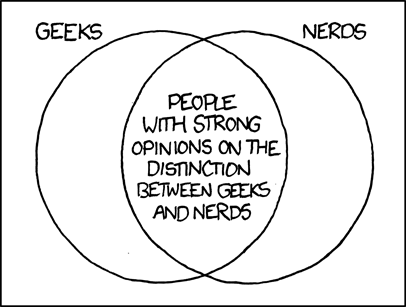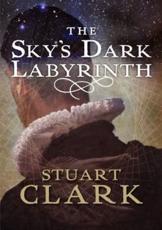Stuart Clark is an astrophysicist, astronomy journalist and author of some twenty titles including The Sun Kings, which was short-listed for the 2008 Royal Society Prize for Science Books.
His latest work, The Sky's Dark Labyrinth (full review here) is a fictional account following Kepler, Tycho and Galileo as they struggle to reconcile new astronomical theories and the first telescopically aided observations with the church's long-standing geocentric model. He's been kind enough to, in his own words, "take a break from trying to get into Newton's head" and talk about his new book.
The Museum even made us food typical of Galileo’s time, including his favourite biscuits that his daughter would make for him.
One of the facts that I uncovered was a continuing theme throughout history of the way these clever people always had to beg for financial sponsorship, ingratiating themselves with the wealthy. In a way this still goes on today, with universities having to curry favour with governments and large successful companies.
What do you think Kepler would have made of modern day cosmology?
The Sky's Dark Labyrinth is published on the 1st of May 2011.
 |
| Image courtesy: Simon Wallace www.meltingpotpictures.co.uk |
Why did you write a work of fiction rather than a biography or straight historical account?
Every time I start a new project I wonder what the best way will be to tell the story. I see all of my books as stories, whether they’re non-fiction or fiction. They must have a narrative flow to engage the readers and keep them with you. My previous book, The Sun Kings, spanning the 19th century, was written as a three-act play although it was non-fiction. The essence of the ‘hero’ passed between three characters, William Herschel, Richard Carrington and Walter Maunder as they fought for the same goal: recognition of the Sun’s magnetic power over Earth. It was narrative non-fiction but at least one newspaper reviewed it as fiction. Surprisingly, they still quite liked it.
The idea for writing The Sky’s Dark Labyrinth as a fictional trilogy came about through conversations between my agent and me and with an editor. I’ve always wanted to publish fiction and the idea of relating these amazing stories about these particular people in a fictional manner appealed instantly. I went away and wrote some test passages, passed it by some friends and editors, took their comments on board and decided to go for it.
These mathematicians’ and scientists’ lives took place against backdrops of immense sociological change: wars, rebellions, persecution, political intrigue and scandal. That kind of drama lends itself to fiction but can often seem superfluous in non-fiction. So, in a strange way, I think the choice of fiction means I can tell these stories more completely than if I were writing non-fiction.
How much poetic license have you introduced? Tycho is a bit over the top, surely?
How much poetic license have you introduced? Tycho is a bit over the top, surely?
If anything, I toned Tycho Brahe down! We meet him in his declining years, not at the height of his powers and eccentricity. What a great character with his freak show of an entourage and his obsessions for despotism and astronomy. You’re right; you couldn’t make it up and be believed.
I have taken some licence. In places I have eased the strict chronology, or simplified events to facilitate the flow of the story, but the majority of it is accurate. For example, I have Kepler caught in the midst of the battle in Prague. Now, I don’t know he was actually involved in the fighting, but he lived so close to the market square where the massacre took place that it’s a least plausible, and I felt appropriate for the story.
I aimed for essential truths in the story by performing enormous amounts of research, reading letters and books written by all these people alongside well-researched papers and books written about them by other people, to see whether I agreed with their interpretations.
I visited locations where the scientists had lived and museums to see artefacts of their times to really flesh out the characters of these essentially ordinary people who were blessed with extraordinary gifts and talents. I used some of their written phrases as dialogue, where it was appropriate.
There’s only one entirely fictional character in the first book, Cardinal Pippe. I invented him as a device to represent the pervasive mindset that Galileo’s trial was about religion versus science. The truth of the trial is so much more complex and fascinating than ranting religion against paragons of rationality. Galileo was not a modern scientist. He had amazing insights and planted the seeds of what became science but that was not why he was persecuted. It was his dabbling in theology that got him into trouble, and the Jesuits, who had been his protectors, made him their scapegoat him to protect themselves. What an extraordinary piece of backstabbing – it had to be a novel!
So some of the greatest astronomers in history also did posh people's horoscopes for a living - that's a tad embarrassing for science isn't it?
So some of the greatest astronomers in history also did posh people's horoscopes for a living - that's a tad embarrassing for science isn't it?
Not at all, the science of astronomy came out of the ancient art of astrology. Astrology was a way of making sense of the world – it was the first theory of everything and by that I mean a way of linking the small to the large. Nowadays our theories of everything try to link particles to galaxies, back then they linked individuals to planets. So many people at the time believed that it worked without any real proof. Kepler was the first to ask the question, “Why did it work?” and began to look for proof of a demonstrable agency that could link the planets to the Earth and ultimately individuals. He understood that the tides were the result of a force coming from the Moon – something that Galileo never accepted – and so cautioned against the wholesale rejection of astrology on those grounds.
It’s where the phrase about ‘not throwing the baby out with the bath water’ comes from. Kepler was defending astrology because he was sure that the Moon was exerting a force on the oceans. I tried and tried to work that phrase into the book, but every time I put it in, it just sounded too modern and a cliché. So, I left it out.
Ultimately, Kepler’s insight into the movement of the planets and the Moon’s influence on the tides set the stage for Newton. In book II of the trilogy, The Sensorium of God, I discuss Newton’s alchemy, which again is an attempt at a theory of everything that didn’t work out. One thing is clear, without Newton’s belief in alchemy, he would never have conceived of a force that acted across space without a medium to carry it – that was a concept straight out of the occult.
How many of the original manuscripts and astronomical devices survive today?
How many of the original manuscripts and astronomical devices survive today?
A considerable amount, fortunately. I saw a large quadrant, dating from 1632, very similar to one that Tycho used in the Boerhaave Museum in Leiden, Holland. I was lucky enough to be in Beijing and visited the old observatory there. Most of those instruments are copies of Tycho’s, constructed by the Jesuits during the 17th century. Fantastic instruments, and of course, all embellished with Chinese dragons.
I had an epiphany in Sweden at the Nobel Museum where I had been invited to view a travelling exhibition from the Galileo museum in Florence. I looked through a replica of Galileo’s telescope – a real one was far too precious to touch. Instantly, I realised why some people claimed not to see the moons of Jupiter. Optically, they are really difficult to see through, the field of view is minuscule; it’s like peering down a well.
 | |
| (L-R) Europa, Ganymede, Callisto and Jupiter Modern 300mm lens, heavily cropped. Photo: Geoff |
One of the facts that I uncovered was a continuing theme throughout history of the way these clever people always had to beg for financial sponsorship, ingratiating themselves with the wealthy. In a way this still goes on today, with universities having to curry favour with governments and large successful companies.
What do you think Kepler would have made of modern day cosmology?
I think he would be publicly embarrassed but privately pleased that there is a NASA spacecraft named after him orbiting right now finding planets around other stars, and showing that his laws of planetary motion hold true for other planetary systems as well.
He would feel vindicated that we have finally found the parallax, which he so desperately wanted to find in order to prove that the Earth moved. And I’m sure he would be speechless that computers can be programmed to take the drudgery out of calculations – remember he did it all by hand, pages and pages of calculation, year after year.
However, there is no doubt at all in my mind that he would have been horrified by the secularism that now dominates science. He worked, like all the early astronomers including Galileo and Newton, for the glory of God. They thought that the work they were doing brought mankind closer to God, not further away. He might even see modern cosmology as a wholesale perversion of the seed he sowed.
One of my goals with the next two books in the trilogy, as I follow the story of Newton and then Einstein, is to show the growth of this secularism, and the way science changed people’s perception of what religion is and can offer. I’ve nearly finished the second book – and believe me Newton is, in his own way, as outrageous as Tycho! And I can’t wait to get started on the third. The father of the big bang is a man called Georges Lemaître. He was an exceptional mathematician, a student of the great astrophysicist Arthur Eddington, and a Jesuit-educated Roman Catholic priest. The last fact put him at a distinct disadvantage among the increasingly atheistic astronomers. Then, he discovered what looked like a moment of creation in Albert Einstein’s Theory of General Relativity – and had to convince everybody that he wasn’t working to some secret religious agenda.
What a gift of a character to write!
The Sky's Dark Labyrinth is published on the 1st of May 2011.




